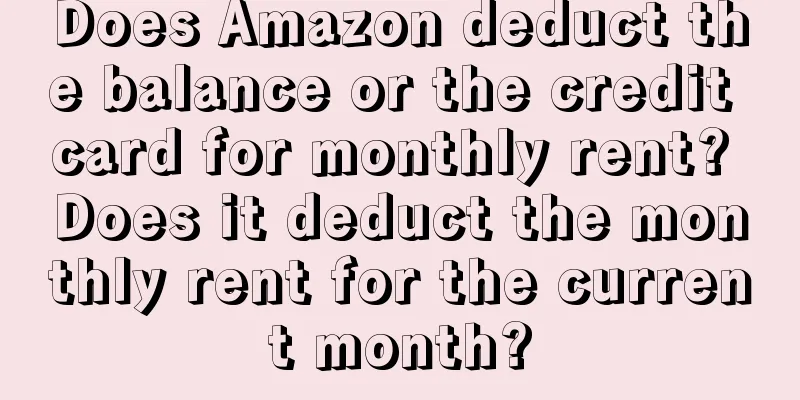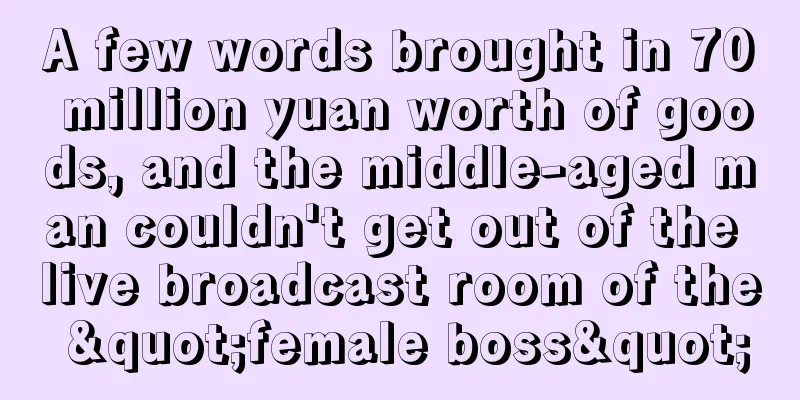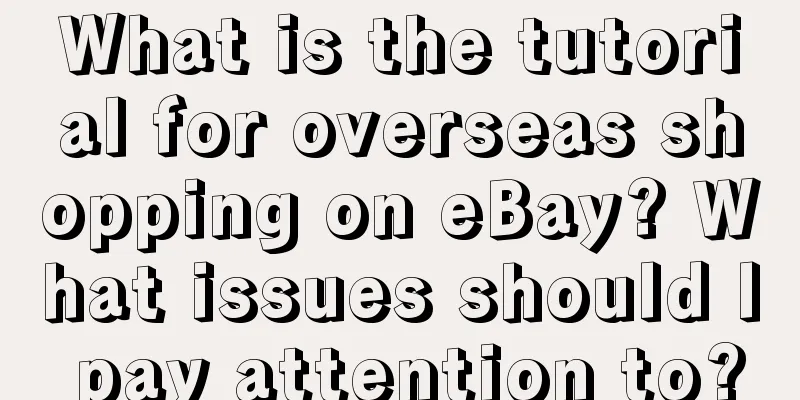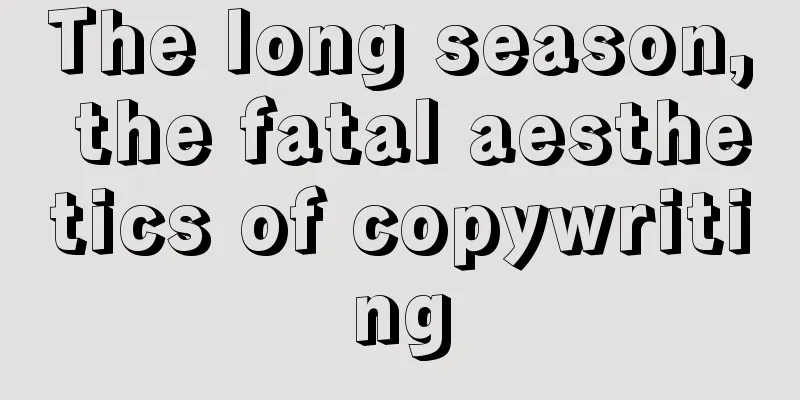Big news! WeChat official accounts can finally change titles, and also launched the "content boost" function

Yesterday, WeChat official accounts underwent two important updates, which made the majority of official account practitioners very happy but also had mixed feelings. First, the official account finally supports modifying the title, with the word count within 3 words, including deletion and replacement. Although it is late, it has arrived. For the operators of public accounts, it is still worthy of the word "big news". Think about the “chicken legs” that were deducted over the years. Behind every wrong headline, there is a broken editor. Apart from anything else, if this feature had been available in 2017, the epic push notification blunder surrounding the Oscars wouldn’t have been so difficult to resolve. Yesterday, WeChat officials made a bold move. First, they published a post titled "WeChat official accounts do not support title modification", announcing that official accounts can change titles. This forced a group of new media people to have an obsessive-compulsive disorder outburst in the comment section, and then they changed the title to "WeChat official accounts already support title modification". He waved his sleeves and left only a pinned reminder saying "Title has been modified". Looking back on the revision process of the content modification permissions of WeChat public accounts, it is simply a history of saving the KPI of new media editors. At the beginning, the official account push was set in stone, with no room for modification. On February 7, 2018, WeChat launched the "typo correction function" late at night. A picture or text can only be modified up to 5 words, which has caused many official account operators to "wash their faces in tears." That night, self-media person Feng Dahui wrote an article using four "finally"s to express his excitement about the official account being able to correct typos. After that, WeChat gradually relaxed restrictions on the modification of public account content, but it seemed that every step was made after long and careful consideration. On December 29, 2018, WeChat public accounts increased the upper limit of correcting typos from 5 to 10; in May 2019, WeChat public accounts announced that 20 typos could be corrected; and in 2023, WeChat public accounts will support the modification of pictures, but can only replace up to 3 pictures, and do not support adding new pictures. There are also restrictions, such as the first picture of a picture message and the pictures of articles published through mutual selection ads cannot be modified. Regarding the modification of published content, Douyin's rule is that it can be modified at most once a day, and it cannot be modified after being published for more than 30 days. Kuaishou, Bilibili, and Xiaohongshu have basically no modification restrictions. WeChat’s rigor is not without reason. When it first opened up the right to modify five typos, WeChat officials explained: “We hope that each push notification is the result of careful consideration by the public account operator. Adhering to the principle of being responsible to readers and better ensuring the user’s reading experience, modifying typos of less than five characters is also to minimize inconsistencies in content when reading repeatedly.” WeChat wants to use this method to allow self-media creators to restrain their expressions, improve the quality of push notifications, and optimize the content ecosystem. However, the pain point of content modification has always existed, and operators have been complaining. Now, a certain degree of relaxation is the result of a balance between the two. There is also a saying in the industry that the modification of some content may involve issues such as laws and cooperation norms, so it is not advisable to make too many changes. This may also be a concern of WeChat. For example, some colleagues have seen such cases on other platforms, where account operators quietly changed the content delivered by customers to lucky carp to attract likes, and then changed it back to the original content after the data improved. Perhaps due to the above considerations, WeChat, which has always been restrained, has always reserved the authority to modify content. For example, the title modification this time can only be up to 3 words, and share the "one-time modification permission" with the modification of the text and pictures. The modified title will only be presented in the article, public account homepage and other locations. The title that has been pushed and appears in the subscription account information flow will not change. After the modification, a “Title has been modified” note will be left at the top of the official account, and “Modified on XXX” will also be displayed at the bottom of the article, and all changes can be traced. The belated arrival makes the WeChat revision seem better than nothing. However, such a degree of relaxation is still a great benefit to content practitioners. It is not only the editor's KPI that is saved, but also the headaches of the parties A and B who have to deal with the modification requirements. The increase in modification permissions after content is pushed means more room for maneuver and should be able to solve many potential troubles. There is also a saying that in the future, the creators of public accounts can improve the opening rate by modifying the title. For example, if the first title is not effective, they can change the title and try again. However, this is different from Toutiao accounts that can get more referral traffic by setting multiple titles. After all, WeChat titles can only change 3 words. Another update is that the official account has begun grayscale internal testing of the "content boost" function. Even good wine needs no bush. Can WeChat public accounts finally be promoted? Yesterday, many people in new media were discussing excitedly, and some said that WeChat was accelerating its commercialization pace, and it was time to "invest in DOU+." But in fact there is a misunderstanding here. WeChat’s current “content boost” and paid traffic promotion are completely different things. According to relevant people from WeChat, this function will be launched in grayscale in July 2024 with the aim of "helping creators get more opportunities to be discovered." Referring to the official WeChat description, there are several details worth noting: First, currently only small and medium-sized creators with less than 10,000 fans have the opportunity to receive the grayscale beta test, and the function will be automatically turned on after receiving it. It can be seen from this that the main purpose of WeChat’s move is to support small and medium-sized creators, encourage high-quality original works, and activate the increasingly stable content ecology. Users who have obtained internal testing qualifications can enter the function from the "Account Growth-Content Boost" menu bar on the left side of the WeChat public platform web page, and click "Content that can be boosted" to initiate a boost. After successfully launching a boost, you can view relevant data in "My Boost - Data Details" Second, the boosted content will appear in the “Take a look” section of the subscription account’s message page. This is also a sector that has become more and more prominent in recent years after WeChat adjusted its recommendation traffic algorithm and increased the proportion of recommended traffic. After adding content boosting, the proportion of "Take a look" recommendations in subscription account information will only increase in the future. Third, not all content can be boosted, and there are still many restrictions at present. First, there are restrictions on the publishing time. Currently, only content published within 3 days of the publication time can be promoted. In other words, past content and content that lacks timeliness will not have the opportunity to be promoted. Secondly, the publishing format is limited. Currently, it only supports boosting text and picture messages, and does not include reprinting, grouping, or paid reading content. In addition, content that is not first released on the WeChat platform does not support promotion, and accounts that violate the "WeChat Public Platform Operation Specifications" or do not comply with the "WeChat Public Account Recommended Operation Specifications" do not support promotion. In addition, the following contents cannot be promoted: marketing promotion content, outdated information, low-quality content, diversion content, clickbait titles, content that may cause personal or property safety risks, etc. In general, "content boosting" is currently an incentive action for small and medium-sized original creators, led by the platform, and is not a fully commercial paid promotion capability. Only high-quality original content from small and medium-sized creators with a certain timeliness and that has passed the platform's review can be promoted. It is understood that the WeChat platform will allocate different "boosting amounts" based on the creative situation of small and medium-sized authors, such as whether they continue to produce original content and the popularity of the content. The creators will then initiate the boost in the background to achieve boost exposure. WeChat officials specifically mentioned: "Content with clear and complete titles, original content, and more interactions will have the opportunity to receive more promotions." Moreover, there is an upper limit to the boost a single piece of content can provide. Currently, a single piece of content supports multiple exposure incentives, and the upper limit of a single exposure is temporarily 5,000. A piece of content can only be successfully boosted once. The boosting duration is 24 hours after the successful start of the boosting. The boosting will be stopped if it times out or the content status is abnormal. The exposure boosting quota may not be fully used. WeChat officials stated that the actual boosting results are limited by content quality and distribution efficiency, and it is possible that the exposure quota is not fully consumed. The many restrictions also reflect WeChat's cautiousness in opening up its traffic. Faced with "content boosting", public account practitioners have mixed feelings. Some say "it's too late, but it's finally here", while others say after a preliminary trial that "the current user recommendation tags are not accurate enough". However, considering that it is still in the grayscale testing stage, it is still difficult to make a final conclusion on the actual effect (friends who have participated in the internal test are also welcome to share their experience in the comment section). WeChat has been facing the challenge of achieving sustainable long-term value and commercial efficiency over the past few years. Judging from WeChat's actions in recent years, the platform should continue to adjust its content recommendation mechanism, increase the proportion of recommendations, and accelerate commercialization. We speculate that through gradual trial and error, it is possible that "content promotion" will be further liberalized in the future. Many content practitioners are also waiting to see whether WeChat can still tell a new story around "even the smallest individuals have their own brands" in 2024. |
>>: Summer's copywriting is half fire and half sea water
Recommend
You have to be able to do the math when you run a private domain
To run a private domain, you need to know how to c...
The three major effects driving ChatGPT: scale effect, network effect, and scope effect
This article starts from the three economic concep...
From Lei Jun’s latest speech, I summarized 3 inspirations for doing “private domain”
This article deeply analyzes the inspiration given...
How does Lazada do self-delivery? Introduction to the delivery process
Lazada is the leading e-commerce platform in South...
The gray market of hotel agents: 0 inventory, 40% profit from price difference, 160,000 yuan a month
For the platform, the gray industry is a cancer th...
Don’t let sales ruin the brand you worked so hard to build!
In the journey of brand building, short-term sales...
Brand Marketing Guide
What aspects should be taken into consideration to...
Is 2023 finally the real "Year of Video Account"?
In recent days, the popularity of WeChat video acc...
Does Amazon Australia require VAT? What are the policy requirements?
Everyone is getting more and more familiar with th...
Hit the rhythm of new product launches and create brand characteristics with creative content|Blue V research on digital 3C brands
In the fiercely competitive digital 3C market, bra...
What logistics does the independent station use for delivery? Which logistics are better?
In the operation of independent stations, choosing...
How to post on Amazon? Tips
When operating a store, you need to understand som...
Four major trends in event marketing in 2024
This article reviews the representative event mark...
After transforming into selling goods, can Xin Jifei still have "technology and hard work"?
Xin Jifei, who became popular last year for his ph...
What is the Allegro entry process? Super detailed process introduction
As the largest e-commerce platform in Poland, Alle...









